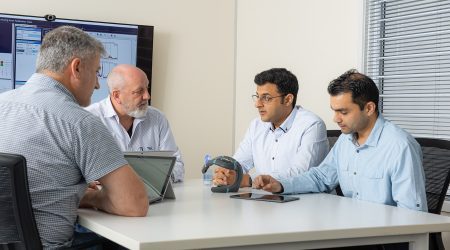In medicine, triage is a term used to explain how treatment is prioritised for those most in need of care. It’s often used to talk about emergencies or acute injuries, where there may be a shortage of staff available to help.
But triage has also been evident over the past few years as the Covid-19 pandemic has soaked up so much of the health sector’s resources and delayed research and procedures for many long-term conditions.
With a small number of Covid cases until early 2022, when restrictions loosened and Omicron took hold, New Zealand has been less affected by the Covid clog up than many nations, but lockdown certainly had an impact, both on patients and research projects, hampering the potential for innovation.
Science is an ongoing process: research is done, experts review it, and where advance or benefit is demonstrated, further steps are required to realise that benefit. That can take some time, even without a pandemic, but much of that research has slowed down. In some cases, it slowed down for very good reason, as researchers switched their attention to a new and pressing problem, Covid-19.
Research over the past few decades proved to be extremely valuable as vaccines were developed in record time. But whether it’s pain, Parkinson’s or prostate cancer, we rely on ongoing research and innovation to improve patient outcomes. These illnesses don’t stop during a pandemic and early research shows long Covid has the potential to increase the prevalence of chronic pain in the population.
It’s difficult to know just what has been lost and how far behind we are now. As a paper in the NZ Medical Journal says: “The knock-on effects of this delay for health system access are likely to be large but difficult to forecast. This uncertainty has many risks, not least that efforts to address the backlogs that grow during lockdown periods will potentially exacerbate the New Zealand health system’s long-standing inequities in access, experience and outcome.”
New Zealand’s health system is highly regarded internationally, in large part due to the higher proportion of government funding dedicated to healthcare. In a 2017 comparison between some of the world’s richest countries, it was ranked fourth.
When it comes to research, however, we fall short. Chronic pain is increasing in prevalence here and around the world, and medical regulators are moving towards non-pharmaceutical options because opioids have been proven to be dangerous due to their addictive nature and their range of unwanted side effects. With one in five New Zealanders suffering chronic pain, we arguably need more (and better) research to highlight how healthcare policy, practice, and procurement need to change to better treat chronic pain sufferers.
At Exsurgo, a neuroscience company dedicated to finding new, non-pharmaceutical treatments for chronic pain and other psychological conditions, we know that extraordinary claims require extraordinary proof. So, we’ve sought it out and, as Covid-19 has spread around the world, we’ve had to continually adapt.
In 2020, we had planned to conduct research in the clinic as part of a small proof-of-concept trial, but changed tack when we couldn’t see patients face to face. One of the many benefits of our Axon system is how patients can treat themselves at home, with clinical oversight. Patients don the headset, play the games on a tablet and, over time, retrain their brains to deal with pain signals in a different way. This remote aspect meant we were still able to conduct research remotely.
The results of the study were impressive and gave us a lot of confidence, so we embarked on a much larger study in Auckland, alongside researchers from the Auckland University of Technology (AUT) – a public/private partnership that we are proud to be a part of, and that we hope will play a role in delivering better health outcomes for New Zealanders that suffer from chronic pain.
We initially planned to conduct the research in 2021 in clinic at North shore Hospital however Covid put the kybosh on that as well. We decided the show must go on and rethought our approach so that once again patients were treated in their own homes and monitored remotely by clinicians.
AUT’s clear focus on developing research in partnership with communities and industry ensures a seamless process from idea generation through to delivering impact. This model has given Exsurgo the opportunity to have world-class New Zealand researchers participate in the world’s largest trial of its kind.
Professor Kath McPherson (who was the Deputy Vice Chancellor of Research at AUT when the trial commenced) says never has this focus been more important than during a pandemic when those very communities are stretched and challenged.
“Partnering is at the very heart of our research strategy and activity because we see it as key to research being more relevant, more likely to facilitate translation to meaningful impact, and more valuable to the communities we serve, including our students.”
This public/private partnership has meant delays experienced by the public health system haven’t been enough to throw us off course.
Our partnership with AUT and the commitment from both parties has proven that not even a global pandemic can halt this desperately needed research. It is our hope that within 18 months, we will be publishing the results of our trial, and be one step closer to New Zealanders having access to a breakthrough non-invasive, non-pharmaceutical treatment for chronic pain.
